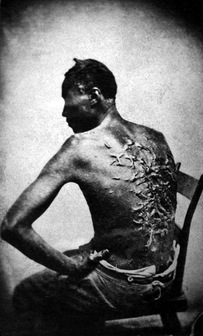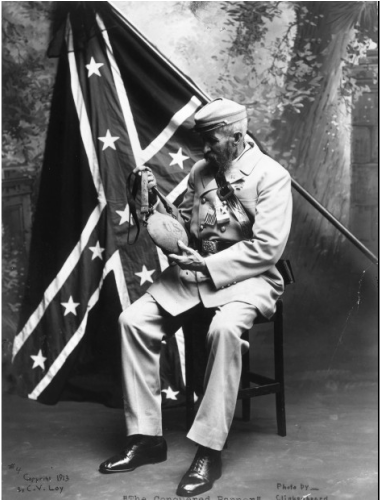After a VERY long hiatus, in which I had completely forgotten the existence of the forums, I returned this week to CivilWarTalk.com. There is so much information for both historical research and reenactor improvement on there that it is well worth the time spent poking around. BUT. Enter my problem--I cannot engage in the secessionist/slavery debates. Thankfully, there are plenty of other topics I can join in on, but these two--very important issues, I cannot. Why, you ask?
Well, I made two separate comments on two separate threads--one concerning secession and the other concerning Northern slavery. (The secesh thread also had plenty of slavery discussion, too.) I knew better at the time. And I there after, essentially slunk coward-like out of the picture. Why? Because I'm not sure where I stand? No...but for the following reasons.
First, and probably the most glaringly obvious, is that I am #1 probably one of the youngest members of the forums and I hate to come across as an antagonist twit. Well, that actually wasn't what I was going to say, but it's applicable. #2 I am quite obviously not as well read...and therefore less prepared. In addition, when I DO have a "quote" I can never remember where I read it, or where to find it again, etc. In other words, I can't source myself (which I've seen multiple demands of in my short time back in the forums.) It really is a good idea, being able to source oneself. (I just so happen to have the same issue with recalling Bible texts. I can't chapter and verse it even if I can paraphrase accurately.)
To add to this obvious set of problems, I have this one--I have acres of trouble being articulate. Some days it's worse than others (and I'm actually managing okay with this post), but other days I simply cannot for the life of me say exactly what I mean in a way that makes sense. I have leaps and gaps in my logic, of which I am glaringly aware, but I cannot see how to bridge them or articulate the bridge.
This in and of itself is enough motivation for me to keep my trap shut in conversations that have a tendency to turn ugly. (Besides which, they are just exercises in rhetoric unless you really do have uncertain persons engaged or reading them. But once you've reached your conclusions--it's a waste of time to ARGUE the point. Not that I think it's really a waste of time to read them and thereby understand the other opinions thinking.)
But, my second point is really the one that propels me to stay out--and really makes me wonder how much of a coward I am. I'm a fool for getting into something unprepared, but am I a coward because I stay out due to my second issue? Tell me honestly what you think.
My second issue is as follows: I come to history, as with any other area of life, with a self-consciously Christian perspective. I want to look at everything through the lens of Scripture...and this includes history and those "sticky" issues--like slavery.
I understand that at least part of the cause behind the War Between the States was theological--but once again, I cannot speak of it because I lack the depth of understanding I hope to someday have. But because I come to it from a "what does the Bible have to say about this" point of view, it makes it awkward at the very least to address a bunch of probably non-Christian, or at least minimal Christians. I am fairly sure that I would be attacked by a particular member who shows all signs of being socialistic.
So, am I a coward because I won't go into a discussion, on slavery for example, and say, "According to the Bible, slavery, in and off itself is not a moral wrong. There are specification for proper treatment of slaves and whenever those are broken then it becomes morally wrong, but the simple act of owning a slave does not make you a sinner." Like I said in a previous post, I have not yet determined how much of Southern slavery was down-right wrong.
*EXPLOSIONS*
And what could I do? Sit there and take it and feel smug because I think I have the Bible on my side? (Not that I would feel smug; I'm not built that way.) Perhaps in a one-on-one conversation...but not in a group setting. I don't see HOW getting myself in on something like that would be a good witness--no matter if I'm right (which I could be wrong) for very, very, VERY few people would think that I was and would thereby think they had excuses to lambast Christians. Plain and simply, I think picking other hills to die on is a whole lot more, well, wise--and useful. So, I will read. I will watch. I will listen. I will learn.
And by the way, I've noticed that the seceshes, like me, drop out of the conversations sooner. Maybe it's because we know we can't force people into our way of thinking and that we are a minority (THANK-YOU Government Education!) and it's really not worth our time banging away at a wall of abolitionist thinking.
Anyway...there is my explanation of why I solemnly resolve to keep my nose clean. I won't promise, because I may slip up....but I resolve to stay out of these kinds of explosive conversations, from here on out. Well, at least until I'm a bit more learned.... ;)

































 RSS Feed
RSS Feed















